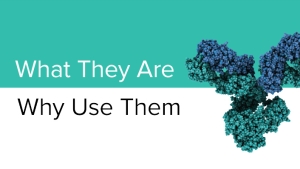Understanding Bispecific Therapies (BiTE)
Bispecific antibody therapies are a groundbreaking advancement in cancer treatment, offering new options for patients when traditional therapies may not be enough. These innovative treatments offer new hope, especially, for patients with cancers that may be resistant to traditional treatments. Bispecific therapies work by harnessing the body’s immune system to effectively identify, target, and eliminate cancer cells.
Download AON’s BiTE Fact SheetWhat are Bispecific Antibodies?
Unlike conventional treatments, bispecific antibodies used in cancer therapy are special proteins engineered to simultaneously bind to both cancer cells and T-cells, a type of immune cell responsible for attacking harmful invaders. By forming this connection, they help the immune system recognize and destroy cancer cells more effectively. Think of them like a bridge linking two distant islands.
How Bispecific Antibodies work?
How are bispecific antibodies being used in cancer care at AON?
At American Oncology Network (AON), we are committed to staying at the forefront of cancer care by incorporating innovative treatments like bispecific antibodies. Our expert team of oncology professionals uses these therapies to enhance patient outcomes. By connecting immune cells to cancer cells, bispecific antibodies help us offer cutting-edge treatment options tailored to each patient’s needs.
Additionally, AON actively participates in clinical trials and collaborates with leading researchers to advance the use of bispecific antibodies in cancer treatment. Our goal is to continue exploring the potential of these therapies to improve quality of life and treatment effectiveness for our patients.
As of March 2025, AON has provided bispecific antibody therapy to patients diagnosed with the following cancers:
- Acute Lymphoblastic Leukemia
- Uveal Melanoma
- Diffuse Large B-Cell Lymphoma
- Follicular Lymphoma
- Multiple Myeloma
- Extensive-Stage Small Cell Lung Cancer
Treatment Considerations
When using bispecific antibodies, it’s important to consider several factors to optimize treatment outcomes and minimize risks. These factors include patient eligibility, potential side effects, and the need for monitoring during therapy.
- Patient Eligibility – Bispecific antibody therapies are typically prescribed for certain types of blood cancers such as leukemia, lymphoma and multiple myeloma. They are also used for certain solid tumor cancers such as lung cancer. A medical oncologist at AON can determine if you are eligible for treatment with BiTE therapy based on your specific type of cancer and your previous treatments.
- Safety Considerations – Bispecific antibody therapies can cause potentially serious or life-threatening side effects, including cytokine release syndrome (CRS) and immune effector cell-associated neurotoxicity syndrome (ICANS). Symptoms of CRS may include fever, low blood pressure, difficulty breathing, and chills. Neurological symptoms may include confusion, difficulty speaking, seizures, and altered consciousness. These side effects typically occur during initial treatment and require immediate medical attention. Patients receiving bispecific antibody therapy are closely monitored, particularly during step-up dosing, and specific protocols are in place to manage these complications.
- Monitoring and Supportive Care – Regular monitoring is essential during bispecific antibody treatment. To ensure patient safety, initial doses are typically given in a hospital setting, where patients are closely observed for signs of adverse reactions, especially in the initial treatment phases. However, some patients may be eligible to receive initial doses in an outpatient setting with close monitoring by their medical team.
Listen to AON’s Podcast Episodes About BiTE
- Bispecific T-Cell Engaging Therapies in Community Oncology RxConnect Podcast S1:E5 | Listen
- Overcoming Challenges to Initiate Bispecifics RxConnect Podcast S2:E1 | Listen
- Overcoming Challenges in Initiating Bispecific Therapy RxConnect Podcast S2:E4 | Listen
- Learning More About BiSpecific Therapy and Implementation RxConnect Podcast S2:E6 | Listen
Related Posts:






